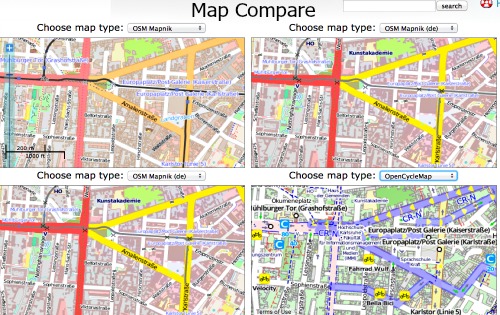

Resource
Crowdfunding for Journalists
At a time when the media is struggling to support serious journalism, investigative reporters increasingly are turning to crowdfunding. The field is growing quickly and success stories abound, but the challenges are many. For our latest resource page, GIJN has gathered tips and strategies from the best sites and blogs, and done a guide to global and regional crowdfunding sites most suited for journalists. Let us know what we’ve missed!
Resource
The Research Desk: Data Thefts, Geolocators, Map Compare, & More
The latest tools and resources from the Research Desk: statistics on data security and privacy, international broadband access and use, map comparisons, and more!

Data Journalism
Top Ten #ddj: The Week’s Most Popular Data Journalism Links

News & Analysis
U.S. Muckrakers: Top Worry Is Newsroom Resources, Not Spying
Despite concerns over government surveillance, a recent survey by the Pew Research Center of investigative journalists found that few have let those worries prevent them from pursuing a story or reaching out to a source. The survey also found a more pressing concern–decreasing newsroom resources.
Resource
The Research Desk: Tips and Tools
The Research Desk with Gary Price is back, with its second installment, featuring a roundup of new tools — the WHO’s MiNDBANK database, with documents from 170 countries; ePSIplatform, on open data in the EU & worldwide; new UN report on wastewater; NATO archives expand; and the Getty Thesaurus of Geographic Names.

Data Journalism
Top Ten #ddj: The Week’s Most Popular Data Journalism Links
What’s the data-driven journalism (#ddj) crowd tweeting about? They are sharing links about the NYTimes’ Upshot’s “redesign of news,” Vox’s data journalism approach, avalanche myths from France’s ESJ Lille, and much, much more.

News & Analysis
Think Tanks: Why Journalists Should Be More Skeptical
Think tanks are no less susceptible than any other institution to the temptations of money and power. There is a real need to address the single most important ingredient of a think tank’s quality: the integrity of its research. Journalists can do their part by treating claims of impartiality more skeptically and providing context about possible conflicts of interest.
Resource
Abraji’s Security Manual for Covering Street Protests
Covering street protests involves risks that every journalist should be prepared for. Knowledge, experience, and planning can help reduce these risks. Our colleagues at Abraji (The Brazilian Association of Investigative Journalism) have particular experience with this — between May 2013 and May 2014, there were at least 171 cases of violations against media staff covering […]

Data Journalism
Top Ten #ddj: The Week’s Most Popular Data Journalism Links
What’s the data-driven journalism (#ddj) crowd tweeting about? Why does the world have more men than women; where is the most expensive place in Africa to run a presidential campaign; and what is “precision medicine?” Find out here!
Resource
Crowdfunding: Case Studies
How Germany’s Journalists Built a Crowdfunding Campaign to Save Russia’s Meduza, GIJN Crowdfunding Campaigns Give Boost to Independent Czech Media, GIJN Behind Journalism’s Top Crowdfunding Campaign, GIJN How the Correspondent crowdfunded $2.5m in 29 days Engaged Journalism Journalism crowdfunding platform PressPatron named hottest media industry tech start-up by NZ Marketing Magazine New Zealand Herald Platform […]

News & Analysis
Investigative Journalism Under Fire: A Case Study from Serbia
A growing number of reports of self-censorship, hacked websites, and intimidation and arrest of writers in Serbia has prompted public warnings by the U.S. government, EU and OSCE. One of the country’s top journalists, Branko Čečen, is firing back with a hard-hitting critique on the sorry state of the nation’s media. He asks: Who’s really interested in accountability and real reporting in Serbia today?
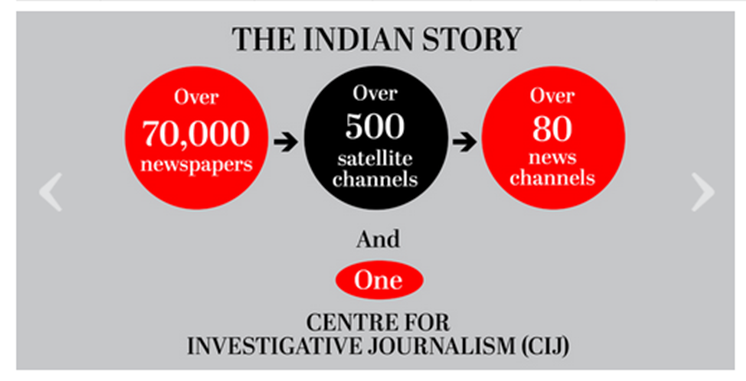
GIJN and India’s CIJ Team Up for “Watchdog Reports”
GIJN has partnered with the Centre for Investigative Journalism, India to launch a new feature, Watchdog Reports. This daily feed on CIJ’s website curates items on investigative reporting from India and around the world, including news of the latest tools, techniques, fellowships, awards and more. India’s center, founded last year, is working with leading journalism schools and media “to train a new generation of Indian investigative journalists.”

Data Journalism
Top Ten #ddj: The Week’s Most Popular Data Journalism Links
What’s the data-driven journalism (#ddj) crowd tweeting about? African Cup of Nations athletes, Berlin bus tours, ATMs that tell us how rich our cities are, and more!
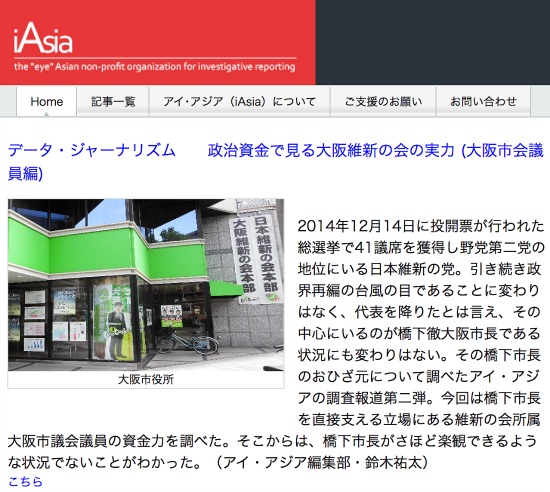
News & Analysis
Japan’s Investigative Journalists Push Back Despite Secrecy Laws
As Japan imposes new laws that threaten to restrict the freedom of the press, some Japanese reporters and activists are seeking new ways to conduct investigative journalism. The problem for Japan now is finding its own sustainable business models, as happened in other Asian countries such as South Korea or the Philippines, where there are now thriving investigative reporting centres.
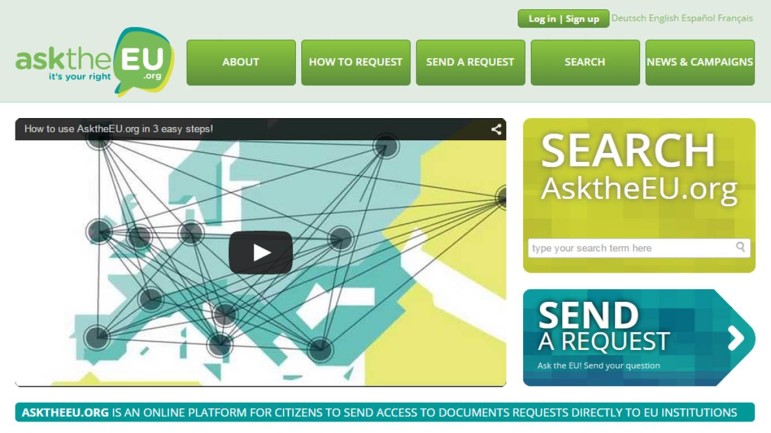
News & Analysis
How Well Do Online Freedom of Information Tools Actually Work?
Online FOI tools have gone global, but how well do they really work? UK-based nonprofit mySociety, which makes the Alaveteli FOI platforms came to some surprising conclusions about the sites’ impact and who uses them. Read the reports’ highlights to find out.

Data Journalism
Top Ten #ddj: The Week’s Most Popular Data Journalism Links
What’s hot among the data-driven journalism (#ddj) twitterati? A bus tour of Berlin, 30 years of reporting on HIV/AIDS in Kenya, 100 ways to visualize a text, and when correlation does not equal causation. Time for this week’s Top Ten #ddj!

Data Journalism
Top Ten #ddj: The Week’s Most Popular Data Journalism Links
What’s the data-driven journalism (#ddj) crowd all in a Twitter about? Here are the new year’s Top Data Journalism Links for January 1-8. Included in this week’s items are visuals from Le Temps, FiveThirtyEight, and OpenDataCity.

News & Analysis
You Can’t Kill an Attitude: Remembering Charlie Hebdo
As I write, the news coverage of the massacre at Charlie Hebdo’s offices has been remarkably good, detailing the weekly’s provocations of Islam over the years. Less has been said about Charlie’s running battle with the French extreme right, and its role in widening the space for investigative reporting in France… This assassination has failed, stupidly and massively. It has created a bigger public than Charlie ever created on its own.
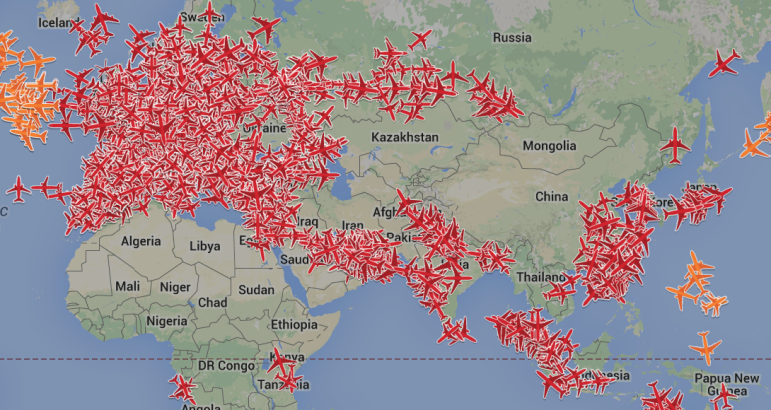

Top Ten #ddj for 2014: The Year’s Most Popular Data Journalism Links
What has the data driven journalism (#ddj) crowd been tweeting about all year long?? What are the most popular hashtags? The most searched domains? The top mentions? We look back on…a year of “things” (BBC), guesting with strangers in à la Airbnb (Le Temps), all of history in “one click” (Herodote.net), the genius of Edward Tufte, and so very much more!
Resource
New Resource Guide: Awards for Investigative Journalists
Follow this link to GIJN’s guide to prominent journalism awards competitions around the world. We’ve looked for awards that are of special interest to investigative journalists, that are open to international entries, and that are global or regional in scope. You’ll find more than 20 sets of awards from a dozen countries. Let us know […]

News & Analysis
Amid Crackdown, ARIJ Forum Reveals Hope in Arab Media
More than 320 journalists from the Middle East, North Africa, and the Gulf met in Amman in early December for the 7th annual Forum for Arab investigative journalists, the largest ever. The ARIJ annual meeting has become the main networking forum for investigative journalists across the Arab world. In spite of an increasingly hostile media environment, many Arab journalists are still engaged in in-depth reporting, pushing against the narrowing borders of free reporting, and raising standards for documentation.

News & Analysis
A Murder in Pakistan: Inside the Global Battle for Media Freedom
In today’s globalized, interconnected world, free and unfettered information is more essential than ever. It’s essential for markets and for trade. And it’s essential to empowering the emerging community of global citizens and ensuring that they are able to participate in a meaningful way in the decisions that affect their lives. Likewise, those who are deprived of information are essentially disempowered. We live in a world in which the abundance of information obscures the enormous gaps in our knowledge

Data Journalism
Top Ten #ddj: The Week’s Most Popular Data Journalism Links
What’s the data driven journalism (#ddj) crowd tweeting about? Here are the week’s Top Data Journalism Links on Twitter (for Dec. 10-18). Among the items: Zeit Online’s Year in Infographics, new prints by Edward Tufte, and the NYT’s @harrisj on “the wave of bullshit data” coming your way.
Uncovering Asia: The Video
Journalists from 33 countries streamed into Manila last month for Uncovering Asia: The First Asian Investigative Journalism Conference. The organizers — GIJN, the Konrad-Adenauer-Stiftung (KAS), and the Philippine Center for Investigative Journalism (PCIJ) — hoped for at least 150 people, but more than 300 came, full of energy, from Japan to Mongolia. The video above captures the spirit and drive that marked this groundbreaking event. As PCIJ director Malou Mangahas told attendees, “Asia is ready!”

News & Analysis
Investigative Journalists from 10 Countries Gather in Ukraine
From the Global Investigative Journalism Conference in 2011 to the groundbreaking YanukovychLeaks project this year, Ukraine has become a key link in international investigative reporting. So it should be no surprise that the annual Ukrainian investigative journalism conference is growing into a regional event.
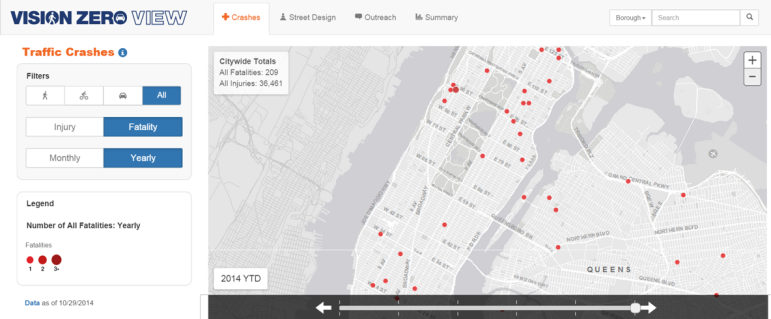
Data Journalism
We Need MUCH More Data
Telling us that traffic accidents happen on streets over time is nice, but it’s just the beginning of an Open Data Odyssey that governments, civil society, and other organizations must begin together to document and describe the tertiary impacts of these events, and many other events, on our collective experiences and lives in large urban ecosystems like New York.

